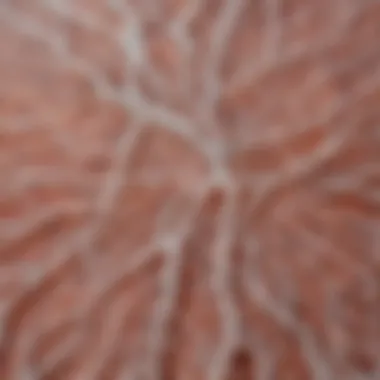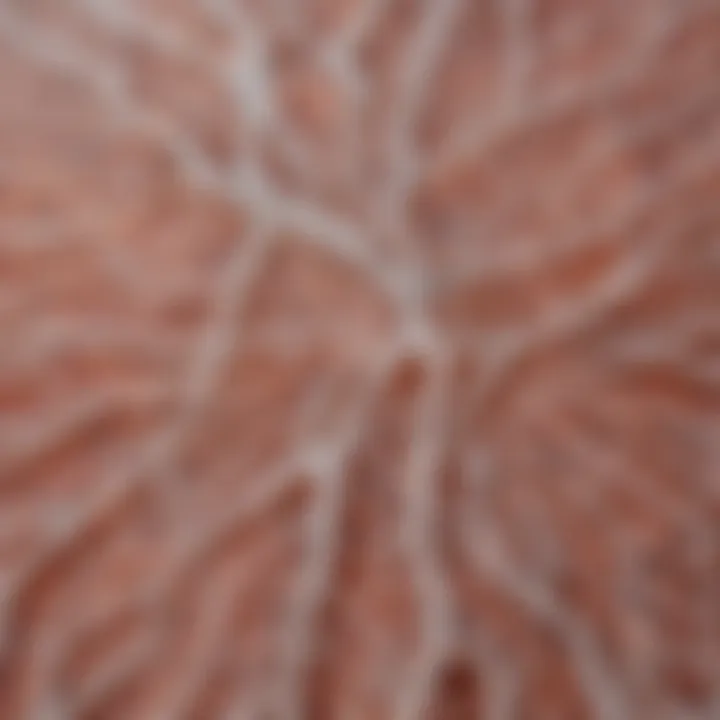Unlocking the Mysteries Behind Dry Scalp: Causes Revealed


Dry scalp can be a bothersome and common issue for many individuals, causing discomfort and aesthetic concerns. In this article, we will delve into the various factors that contribute to this condition, providing insights to help you effectively manage and address dry scalp. Understanding the root causes of dry scalp is crucial in developing a targeted approach towards alleviating its symptoms and promoting scalp health.
Factors Contributing to Dry Scalp
Environmental Influences:
One significant factor that can contribute to dry scalp is environmental influences. External elements such as harsh weather conditions, excessive sun exposure, and low humidity levels can strip the scalp of its natural oils, leading to dryness and flakiness. Understanding how these factors impact your scalp can guide you in taking preventive measures to protect and nourish your skin.
Improper Hair Care Practices:
Another common cause of dry scalp is improper hair care practices. Using harsh shampoos, overwashing, and frequent use of heated styling tools can disrupt the scalp's natural balance, resulting in dryness and irritation. By adopting gentler hair care routines and ensuring proper hydration, you can help restore moisture to your scalp and promote overall scalp health.
Skin Conditions and Imbalances:
Certain skin conditions, such as eczema, psoriasis, and dermatitis, can contribute to dry scalp. These conditions often result in inflammation and heightened sensitivity, causing discomfort and flakiness. Identifying any underlying skin issues and seeking appropriate treatment from a dermatologist can play a crucial role in managing dry scalp effectively.
Lifestyle Factors and Diet
Stress and Hormonal Imbalance:
Stress and hormonal imbalances can also impact the condition of your scalp. High levels of stress can trigger excessive oil production or disrupt the skin's barrier function, leading to dryness. Similarly, hormonal changes, such as those experienced during pregnancy or menopause, can influence scalp health. Finding ways to manage stress and adopting a balanced diet rich in essential nutrients can help support a healthy scalp environment.
Dehydration and Nutritional Deficiencies:
Dehydration and nutritional deficiencies can play a significant role in the development of dry scalp. Inadequate water intake and a lack of essential vitamins and minerals can compromise skin health, including the scalp. Ensuring proper hydration, incorporating nutrient-rich foods into your diet, and considering supplements if necessary can aid in maintaining optimal scalp hydration.
Allergies and Sensitivities:
Some individuals may experience dry scalp as a result of allergies or sensitivities to certain hair care products or ingredients. Common culprits include sulfates, preservatives, and fragrances, which can irritate the scalp and contribute to dryness. Conducting patch tests, opting for hypoallergenic products, and avoiding known irritants can help prevent allergic reactions and minimize scalp discomfort.
Conclusion


Exploring the various causes of dry scalp is essential in understanding the unique factors that may be contributing to your condition. By addressing these underlying issues and making targeted lifestyle adjustments, you can effectively manage and alleviate dry scalp symptoms. Remember, a holistic approach that considers environmental, lifestyle, and skincare factors is key to nurturing a healthy scalp and promoting overall well-being.
Introduction
Definition of Dry Scalp
Dry scalp is characterized by a lack of moisture on the scalp, leading to itching, flakiness, and irritation. Unlike dandruff, which is caused by an overproduction of oil, dry scalp is a result of insufficient hydration and can occur due to various factors such as weather conditions, hygiene practices, diet, health conditions, and hormonal influences.
Signs and Symptoms
Recognizing the signs and symptoms of dry scalp is imperative for timely intervention. Common indicators include itchiness, flaking skin, redness, and a feeling of tightness on the scalp. These symptoms can vary in intensity, with some individuals experiencing mild discomfort while others may face more severe issues like scalp sores or inflammation. Understanding these signs is the first step towards effectively addressing and managing dry scalp.
Importance of Understanding Causes
Comprehending the causes of dry scalp is essential for devising personalized treatment plans. By identifying the specific factors contributing to dry scalp, individuals can tailor their lifestyle choices and hair care routines to alleviate symptoms. Addressing the root cause of dry scalp not only leads to immediate relief but also promotes long-term scalp health and overall well-being.
Environmental Factors
Weather Conditions
Impact of Dry and Cold Weather
Dry and cold weather conditions are notorious for causing dry scalp issues. The lack of moisture in the air can parch the scalp, making it prone to dryness and irritation. The harsh cold can further worsen these effects, exacerbating any existing scalp concerns. It is imperative to protect the scalp during these conditions with appropriate head coverings and moisturizing treatments.
Exposure to Sunlight
While sunlight is essential for overall health, excessive exposure can have adverse effects on the scalp. UV rays can damage the scalp's skin cells, leading to dryness and potentially even sunburn. It is crucial to strike a balance between receiving adequate sunlight for vitamin D synthesis and protecting the scalp from harmful UV radiation.
Humidity Levels
Humidity levels also play a crucial role in scalp health. High humidity can lead to excess sweating and greasiness, potentially aggravating scalp conditions. On the other hand, low humidity can strip the scalp of moisture, causing dryness and itchiness. Maintaining a moderate humidity level is essential for a healthy scalp environment.
Hygiene and Hair Care Practices


Maintaining proper hygiene and adopting effective hair care practices are crucial aspects of combating dry scalp issues. The cleanliness of the scalp plays a significant role in its overall health. By ensuring regular washing with a suitable shampoo, individuals can remove excess oil, dirt, and product buildup that may contribute to dryness. Moreover, proper hair care practices involve choosing gentle products that do not strip the scalp of its natural oils, thus helping to retain moisture and prevent dryness.
Overwashing
Effects of Excessive Shampooing
The Effects of Excessive Shampooing can exacerbate dry scalp woes. Overwashing strips the scalp of its natural oils, leading to increased dryness and irritation. Cleansing too frequently may disrupt the scalp's natural balance, causing it to produce more oil in an attempt to compensate for the loss. This can create a vicious cycle of dryness and oiliness, further irritating the scalp. While cleanliness is essential, finding the right balance in washing frequency is key to maintaining a healthy scalp.
Frequency of Hair Washing
The Frequency of Hair Washing is a critical consideration in managing dry scalp. Individuals with dry scalp should reduce the frequency of washing to prevent stripping the scalp of its essential oils. Washing hair too often can worsen dryness by depleting the scalp's natural moisture, leading to a parched and itchy scalp. However, it's important to strike a balance as infrequent washing can also result in product buildup and hygiene concerns. Therefore, understanding one's scalp type and adjusting the washing regimen accordingly is vital for mitigating dry scalp issues.
Use of Harsh Products
Using harsh or chemical-laden hair products can significantly impact scalp health and contribute to dryness. Chemical-laden hair products contain ingredients that may strip the scalp of moisture, leading to dryness and potentially exacerbating existing scalp issues. Individuals should prioritize gentle, nourishing hair products that promote scalp hydration and health. Opting for natural or sulfate-free alternatives can help maintain the scalp's moisture balance and reduce the risk of dryness.
Scalp Massage and Exfoliation
Incorporating scalp massage and exfoliation into a hair care routine can benefit scalp health. Scalp massage enhances blood circulation, which can promote hair growth and improve the health of the hair follicles. Additionally, exfoliating the scalp aids in removing dead skin cells and product buildup, allowing for better absorption of nourishing products. However, it's essential to practice gentle exfoliation to avoid irritation and damage to the scalp. Regular scalp massage and exfoliation can contribute to a healthier scalp environment and may help alleviate dry scalp symptoms.
Diet and Nutrition
In the exploration of factors contributing to dry scalp, the segment focusing on diet and nutrition stands out in revealing the significant role these elements play in maintaining scalp health. Our dietary choices directly influence the condition of our skin and scalp, making it imperative to understand the impact of nutrition on scalp moisture and overall health. Consuming sufficient water and hydrating foods is crucial for combating dryness and promoting a well-nourished scalp. Additionally, incorporating nutrient-rich foods such as fruits, vegetables, and proteins can aid in supporting scalp health and combatting dry scalp concerns. Therefore, being mindful of one's dietary intake can serve as a potent tool in addressing and managing dry scalp effectively.
Dehydration
Dehydration emerges as a key aspect in the realm of dry scalp causes. Insufficient hydration not only affects our overall well-being but also plays a pivotal role in the development of scalp dryness. When the body lacks proper hydration, the scalp is prone to becoming dry, flaky, and itchy. This reiterates the crucial significance of maintaining adequate hydration levels by consuming an ample amount of water daily. Regular hydration not only benefits the scalp but also supports optimal bodily functions, contributing to overall health and well-being.
Deficiency in Essential Nutrients
Diving deeper into the realm of essential nutrients reveals a profound connection between vitamin and mineral deficiencies and dry scalp. The impact of inadequate intake of essential nutrients like vitamins and minerals can manifest in the form of various scalp issues, including dryness. Vitamin and mineral deficiencies can compromise scalp health, leading to dryness, irritation, and inflammation. Identifying and rectifying these deficiencies through balanced nutrition or suitable supplements can significantly enhance scalp health and combat dry scalp concerns effectively. Therefore, prioritizing a diet rich in essential nutrients is paramount in nurturing a healthy scalp and mitigating dryness.


Impact of Vitamin and Mineral Deficiencies
Specifically focusing on the impact of vitamin and mineral deficiencies sheds light on the intricate relationship between nutritional inadequacies and dry scalp issues. Vitamin and mineral deficiencies can disrupt the natural balance of the scalp, resulting in dryness and related discomfort. Understanding the key characteristics of these deficiencies and their detrimental impact on scalp health is essential in addressing dry scalp concerns. By acknowledging the significance of maintaining adequate levels of essential nutrients, individuals can proactively work towards preventing and managing dry scalp conditions effectively. Embracing a nutrient-rich diet or supplementation as needed can assist in restoring scalp health and alleviating dry scalp symptoms, underlining the importance of addressing specific nutritional deficiencies for optimal scalp wellness within the context of dry scalp management.
Health Conditions
In the realm of dry scalp causes, examining health conditions holds significant importance. Health conditions such as seborrheic dermatitis, psoriasis, and eczema can play a crucial role in exacerbating dry scalp concerns. Understanding the relationship between these conditions and the scalp's health is essential for effective management and treatment. By delving into the specific elements of these health conditions, individuals can better grasp the underlying factors contributing to dry scalp and take appropriate measures to address them.
Seborrheic Dermatitis
Seborrheic dermatitis is a common skin condition that can impact the scalp, leading to irritation, flakiness, and dryness. The exact causes of seborrheic dermatitis are not fully understood, but factors such as genetics, hormones, and immune system response are believed to play a role. Individuals experiencing seborrheic dermatitis may notice redness, greasy scales, and itching on the scalp. Managing this condition involves incorporating gentle shampoos, anti-inflammatory treatments, and lifestyle adjustments to alleviate symptoms and promote scalp health.
Psoriasis
Psoriasis is a chronic autoimmune disorder that can affect the scalp, causing skin cells to multiply rapidly, leading to the formation of thick, red patches with silvery scales. While the exact cause of psoriasis is unknown, genetic predisposition, immune system dysfunction, and environmental factors can trigger its onset. Scalp psoriasis can be accompanied by itching, burning, and pain, significantly impacting an individual's quality of life. Treatment approaches may involve medicated shampoos, topical treatments, phototherapy, and systemic medications to manage symptoms and enhance scalp health.
Eczema
Eczema, also known as atopic dermatitis, is a chronic inflammatory skin condition that can manifest on the scalp, resulting in dry, itchy, and inflamed patches. Eczema is linked to genetic and environmental factors, with triggers such as allergens, stress, and harsh hair care products exacerbating symptoms. Managing scalp eczema involves gentle cleansing routines, moisturizing treatments, and identifying trigger factors to prevent flare-ups and maintain scalp comfort. Understanding the nuances of eczema and its impact on scalp health is crucial for developing an effective care regimen.
Stress and Hormonal Factors
To comprehend the complex interplay between stress and hormonal imbalances on scalp health is crucial in addressing dry scalp issues effectively. Stress, a ubiquitous aspect of modern life, can significantly impact the body's physiological processes, including skin health. When stress levels escalate, the body releases cortisol and other stress hormones that can interfere with sebum production on the scalp. This disruption can lead to dryness and irritation, manifesting as flakiness and itchiness. Understanding how stress influences scalp health empowers individuals to adopt stress-reduction strategies and mindfulness practices to mitigate its detrimental effects.
Impact of Stress
Stress stimulates the release of cortisol, a hormone that triggers oil production in the skin. However, chronic stress can disrupt this balance, leading to excessive oil production or conversely, a reduction in sebum levels. In the context of dry scalp, heightened stress levels can disrupt the skin's barrier function, making it more susceptible to moisture loss. This can cause the scalp to become dry, itchy, and prone to inflammation. Implementing stress-reduction techniques such as mindfulness meditation, yoga, or deep breathing exercises can help restore equilibrium to the scalp's sebum production and promote a healthier scalp environment.
Hormonal Imbalances
Hormonal imbalances, particularly fluctuations in estrogen, progesterone, and testosterone levels, can play a pivotal role in dry scalp development. In women, hormonal changes during menstruation, pregnancy, or menopause can influence sebum production and skin hydration, directly impacting scalp health. These fluctuations can disrupt the skin's natural lipid barrier, leading to increased transepidermal water loss and contributing to dry scalp conditions. Understanding the cyclical nature of hormonal changes and how they influence scalp health is essential in developing targeted strategies to manage and alleviate dry scalp symptoms. Incorporating hormone-balancing foods, staying hydrated, and maintaining a consistent skincare regimen tailored to hormonal fluctuations can help restore moisture balance and promote scalp health.
Conclusion
Dry scalp, a common condition that many individuals face, is often a result of a combination of factors such as environmental influences, hygiene routines, dietary habits, health issues, and stress levels. Addressing the underlying causes of dry scalp is essential to effectively managing this concern. By understanding the triggers that can lead to dry scalp, individuals can take proactive steps to nurture a healthy scalp environment and promote overall scalp health.
Summary of Key Takeaways
- Environmental Factors: Factors such as dry and cold weather, sunlight exposure, and humidity levels can contribute to dry scalp. It's important to adapt hair care practices based on environmental conditions.
- Hygiene and Hair Care Practices: Overwashing, using harsh products, and neglecting scalp massage can impact scalp health. Choosing gentle hair care products and incorporating scalp massage can help alleviate dry scalp.
- Diet and Nutrition: Dehydration and nutrient deficiencies, particularly in essential vitamins and minerals, can affect scalp health. Staying hydrated and consuming a balanced diet rich in nutrients can support a healthy scalp.
- Health Conditions: Conditions like seborrheic dermatitis, psoriasis, and eczema can lead to dry scalp. Seeking medical advice and appropriate treatment can assist in managing these conditions.
- Stress and Hormonal Factors: Stress and hormonal imbalances can exacerbate dry scalp. Practicing stress management techniques and seeking hormonal balance can positively impact scalp health.







